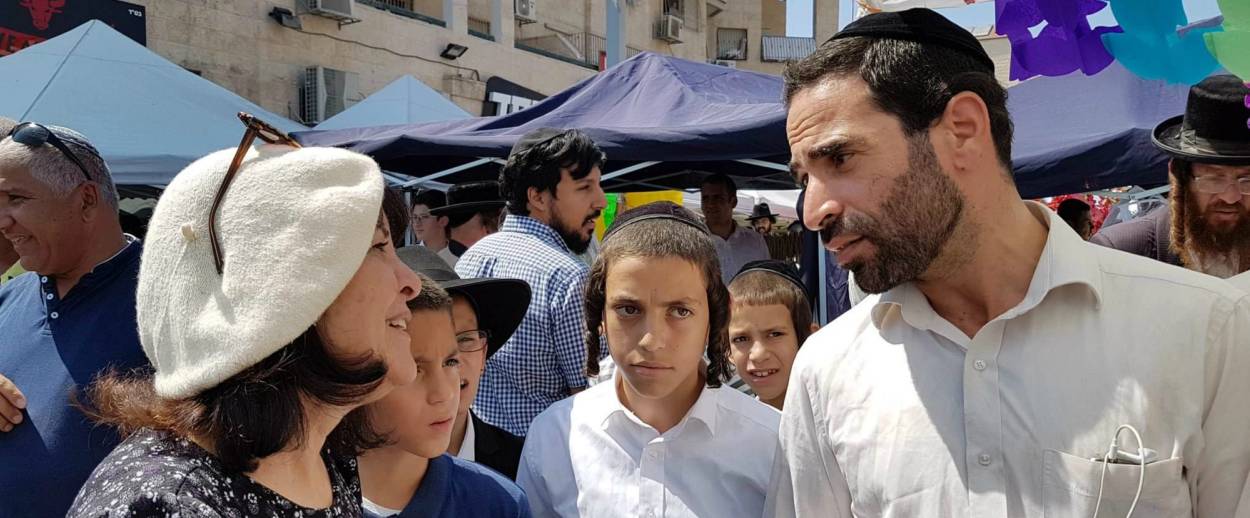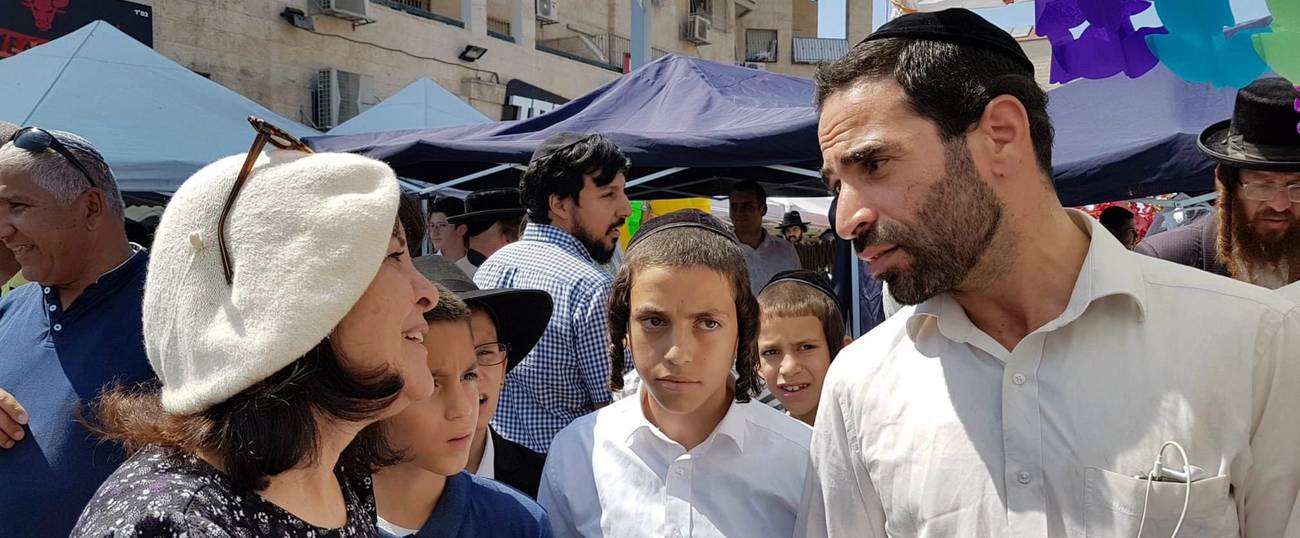Can an Orthodox Woman Win Votes in an Ultra-Orthodox Town?
Aliza Bloch is running for mayor of Beit Shemesh, a Haredi stronghold infamous for intolerance towards women. Does she have a shot?




In Israel’s upcoming municipal elections on Oct. 30, a city once known as the site of vicious attacks against a young schoolgirl by ultra-Orthodox “virtue police” may be poised to elect a woman mayor.
Aliza Bloch, 51, is a religious Zionist woman running for mayor in Beit Shemesh with the aim of uniting the fractured community. And while she insists she has support from residents of all backgrounds, the results will largely be seen as a referendum on the increasingly far-right direction that the city has headed under Mayor Moshe Abutbul.
Bloch is married with four children. She was raised in Israel and moved to Beit Shemesh in 1992. Around the community, she’s known for revitalizing the local junior high school. These days, she manages the national network of Branco Weiss schools, with around 30,000 students.
Founded in the 1950s just a 40-minute drive from both Jerusalem and Tel Aviv, Beit Shemesh’s population has skyrocketed in the last two decades and is projected to house 125,000 residents by 2020. At first the town was heralded as a place where religious and secular communities could coexist, but in recent years, extremist Haredi groups have developed a stronghold in the area, leading to conflict.
In 2011, Beit Shemesh’s internal strife became a national media story, when a widely circulated video showed ultra-Orthodox men calling an 8-year-old schoolgirl a whore and spitting on her for what they claimed was immodest dress. In the years since, the Haredi community has made more claims on daily life in the city. For example, on bus routes that run through their neighborhoods, Haredim have managed to implement an unofficial rule that requires women to sit in the back.
When asked about the problems in Beit Shemesh, Bloch shies away from the much-reported conflicts and instead focuses on common, and uncontroversial issues with municipal governance. “I see with great sorrow the city’s severe neglect—the garbage and dereliction everywhere, the collapse of the city welfare department, the collapse of municipal infrastructures such as water, roads, and sidewalks, the fact that the municipality does not invest in youth, the needy, children and adults with special needs, culture, or sports,” she told Tablet. “The Beit Shemesh municipality has a huge deficit of 200 million shekels, stemming from negligent management, lack of strategic thinking, and the preference of benefiting groups who are close to those in power over the rest of the population.”
Her solution follows from the mantra she has taught her many students. “One must not accept harsh reality but work hard to fix it, and that is what I am trying to do now. I bring my integrity and my management skills, and seek a mandate from the residents of Beit Shemesh to turn the city from a city of despair into a city that is good to live in.”
When discussing the Haredi community, Bloch insists the conflict can be easily solved. “I say unequivocally: In Beit Shemesh there is no war between the residents and neither will there be! Ultra-Orthodox, secular, traditional, and National-Religious people are all equal, accepted and beloved residents.” From questions of internal conflict in the community, Bloch shifts focus back to the shortcomings of the area’s political leaders. “Unfortunately, the current mayor, Rabbi Moshe Abutbul, is trying to cause friction between the residents and create a religious war in order to divert the discussion from his omissions and failures. Our problems are not the internal tensions, but the fact that because of Mr. Abutbul’s neglect, the residents do not receive what they deserve.”
Despite her unsuccessful bid for mayor in 2013 (she withdrew from her party’s primary), Bloch is confident in her odds this time around. “That was five years ago and is already behind us,” she says. “With God’s help, this coming Tuesday the residents of Beit Shemesh will elect me as mayor.
In closing, Bloch reiterated to Tablet that the people of Beit Shemesh have a chance to live together in peace and cooperation. “Beit Shemesh does not have to be a place of suffering, Beit Shemesh can and should be a city of success and of peace; and with God’s help and with the help of the wonderful residents, this will happen starting next Tuesday.”
Recent polls have Bloch neck and neck with the incumbent, Abutbul, but there is still doubt whether the Haredim, known to vote as a block, will elect a woman.
Elazar Abrahams is a former intern at Tablet, and will attend Yeshiva University after a gap year at Netiv Aryeh in Jerusalem.